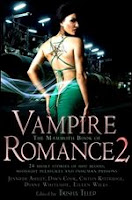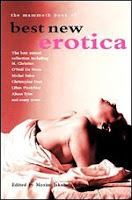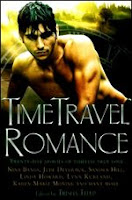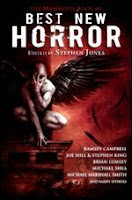This was posted on Google+ by a photographer:
https://plus.google.com/u/0/107023475113646570269/posts
But it raises the quintessential Romance Writer's Question -- How To Marry Rich (or above one's station in life).
Here's what Baber Afzal
Film Maker, Experimentalist and an HDR/Portrait Photographer
Posted (I've no idea if this particular CEO actually said this, but it doesn't matter for this exercise).
-----------QUOTE--------------
A reply from CEO of J.P. Morgan to a pretty girl seeking a rich husband
A young and pretty lady posted this on a popular forum:
Title: What should I do to marry a rich guy?
... I'm going to be honest of what I'm going to say here.
I'm 25 this year. I'm very pretty, have style and good taste. I wish to marry a guy with $500k annual salary or above.
You might say that I'm greedy, but an annual salary of $1M is considered only as middle class in New York.
My requirement is not high. Is there anyone in this forum who has an income of $500k annual salary? Are you all married?
I wanted to ask: what should I do to marry rich persons like you?
Among those I've dated, the richest is $250k annual income, and it seems that this is my upper limit.
If someone is going to move into high cost residential area on the west of New York City Garden(?), $250k annual income is not enough.
I'm here humbly to ask a few questions:
1) Where do most rich bachelors hang out? (Please list down the names and addresses of bars, restaurant, gym)
2) Which age group should I target?
3) Why most wives of the riches are only average-looking? I've met a few girls who don't have looks and are not interesting, but they are able to marry rich guys.
4) How do you decide who can be your wife, and who can only be your girlfriend? (my target now is to get married)
Ms. Pretty
A philosophical reply from CEO of J.P. Morgan:
Dear Ms. Pretty,
I have read your post with great interest. Guess there are lots of girls out there who have similar questions like yours. Please allow me to analyse your situation as a professional investor.
My annual income is more than $500k, which meets your requirement, so I hope everyone believes that I'm not wasting time here.
From the standpoint of a business person, it is a bad decision to marry you. The answer is very simple, so let me explain.
Put the details aside, what you're trying to do is an exchange of "beauty" and "money" : Person A provides beauty, and Person B pays for it, fair and square.
However, there's a deadly problem here, your beauty will fade, but my money will not be gone without any good reason. The fact is, my income might increase from year to year, but you can't be prettier year after year.
Hence from the viewpoint of economics, I am an appreciation asset, and you are a depreciation asset. It's not just normal depreciation, but exponential depreciation. If that is your only asset, your value will be much worse 10 years later.
By the terms we use in Wall Street, every trading has a position, dating with you is also a "trading position".
If the trade value dropped we will sell it and it is not a good idea to keep it for long term - same goes with the marriage that you wanted. It might be cruel to say this, but in order to make a wiser decision any assets with great depreciation value will be sold or "leased".
Anyone with over $500k annual income is not a fool; we would only date you, but will not marry you. I would advice that you forget looking for any clues to marry a rich guy. And by the way, you could make yourself to become a rich person with $500k annual income.This has better chance than finding a rich fool.
Hope this reply helps.
signed,
J.P. Morgan CEO
---------END QUOTE-------
My comment was:
There's a question that's gone unasked here, and the CEO POV almost captures the issue but not quite. "What qualities do high-income jobs imbue into a prospect that "I" (the not-so-rich pretty one) would find attractive?" In other words, what do I need in a husband that would inevitably cause him to be a high-income-earner?
The CEO worked the problem from the high-income-earner's POV, but not from the low-income-earner's POV.
And it occurs to me to wonder if the pretty woman was actually a low income earner.
Which begs the question, why does income-status (or asset status) difference matter in marriage?
Or does it matter, really?
We've seen all this mulled over in thousands of "trash romances" -- read-and-toss romances, all cut from the same cloth.
And we've seen it tackled in long Romances, with wide, deep, wrenching themes, or in Fantasy Universes where the marriage twists the course of history for several civilizations.
This is an issue in today's world where we are wrestling with whether human cultures actually create CLASS DIFFERENCES inevitably, or should we strive to erase "CLASS" from social structure?
Crossing "Class" lines for marriage in any culture is an Alien Romance -- it's romance with someone so different they may as well not be human. Well, you could probably make a case for that for any male/female marriage, Venus and Mars and all that. Add a class barrier (or a age gap) and you're talking Alien Romance.
Is there even really such a thing as "CLASS" -- as a permanent attribute of a human being. (My Fair Lady)
What this pretty woman was pondering was the methodology of changing her CLASS by an act of will.
She may be unable to answer the question because it's not framed well.
The marriage "transaction" is (as we noted last week) one of GIVING and RECEIVING -- not TAKING and RECEIVING.
http://aliendjinnromances.blogspot.com/2012/05/theme-element-giving-and-receiving.html
The question the CEO was dancing around is, "What have you got to offer in return for wealth?"
What have you got that wealth does NOT have?
If you would RECEIVE you must first GIVE -- and what the CEO was perceiving was an attempt to TAKE instead of GIVING.
In a real Soul-Mate match between someone hugely wealthy and someone not wealthy, usually you find that the not-wealthy one brings some talent, ability, or magic to the Relationship that actually causes the entire family's system to function.
"Behind every successful man is a strong woman."
Very often, the earning power of a man goes way up after he commits himself to a woman. When you commit to GIVE, then the means to do that giving will come into your life (it's called the Law of Abundance in Magic, and just God in most Religions. But the function of it does not depend on belief.)
Sometimes a very wealthy man (say who inherits wealth) marries a woman who is a great wealth manager.
Sometimes a wealthy woman marries a man who is a great wealth manager.
But consider the woman above -- she presents herself (perhaps coyly) as having nothing but beauty. To whom is a woman of great beauty valuable? To an artist, producer, or other purveyor (modeling agency owner) of beauty.
Suppose, however, that the pretty woman has some other attribute than beauty, an attribute that will appreciate with time provided there is wealth available?
An example would be a woman who needs an expensive education to invent or discover something to change the human misery index in this world?
Say for example, this is a young woman with the Vision of how to create a cure for a disease or disorder, but she needs a doctorate and can't even get a scholarship?
Or suppose she is an entrepreneur type person who needs an investor.
In neither example is marriage the necessary component to make the business transaction work.
The fodder for a novel can be found in these situations though when you ask, "Why hasn't he found the cure for this disease, or gotten this or that education, or started up this or that business?" Why didn't he do it himself?
Then you ask, "Why hasn't she found a way to get the education, or team up with someone who has it?" or "Why hasn't she just started a little garage business and demonstrated to neighbors that they should invest $100 in her business?" (other than that this current government is making such startups impossible by making it illegal to do any of these little things without expensive permits and compliance and lawyers.)
Find answers to those "Why" questions for the high-income earner (could be either the man or the woman), then solve the entire problem by putting the two of them together into a marriage made in heaven -- where the spirits intertwine so cleanly and so naturally that each is energized, given vision, ambition, abilities they never had before BECAUSE OF the spiritual union between them supporting emotional health.
What happens when two such souls join in marriage? Sometimes just a business partnership is needed; sometimes it needs marriage to pull off the trick -- either is 7th House. What happens is that the spiritual energy circulating between them in that closed circuit called marriage creates the magical equivalent of the magnetic field circulating electrons create.
That magical/magnetic field can do "work" -- change things in the vicinity -- cause opportunities to arrive, trigger the actions necessary to take advantage of the opportunity, and then cascade on into a full materialization of the opportunity's potential energy.
We discussed this magical/magnetic analogy last week.
In the Magical (Paranormal Romance) view of reality, the magic CAUSES the result.
In the God centered view of reality, the Soul reaches for contact (closes the circuit) with God, and spiritual energy flows into Reality through the person and imbues their actions with more effectiveness than when that circuit with God is open.
Either explanation will work for some readers -- but the trick the writer has to pull off is to present the vision of this process working out (a fulfilled marriage) and producing concrete results that one character explains one way, another character explains another way, and a third gives a totally different view. None of these explanations are, (or should be) those of the author or the reader. They are certain individual characters applying archetypical principles to the problem presented in the novel -- leaving the reader to puzzle over what really happened, knowing that the events depicted are possible in their own life.
To do that, the writer must be able to assume the point of view of each of these fully rounded characters, and for a time, to believe their explanation of why the universe works the way it does, to believe that philosophical point of view.
You have to be able to argue all kinds of points of view that are not your own.
To do that, you have to explore philosophy that is not your own.
To do that, you have to shelve your prejudices.
You see around you (just read some blog comments on the larger media sites) opinions you know in your gut are absolutely despicable -- that no honorable or reasonably value conscious human being could possibly espouse.
You live in a world that doesn't know the difference between opinion and fact, or between opinion and a question! But you, as a fiction writer, (most especially Romance which makes too many assumptions that aren't properly questioned in the plot), must know the difference between your own opinion, your character's opinion, facts, reality, and fiction.
To create a universe full of characters who walk off the pages into your readers' dreams, you must find for yourself a vision of this universe, how and why it functions as it does, and then how and why all these different people (your potential readers) see a totally different universe around them. Then you have to explain to your readers the visions of the universe held by your other readers.
This is a process that Walter Breen called "Shifting Subjectivities." I can't think of a better name for it.
We all live in a subjective world where the self is at the "origin" (the point where the X, Y, and Z axes of our coordinate system cross), but each and every one of us is the "origin" of a totally different coordinate system. We do have one immutable thing in common. We all are at THE origin of A coordinate system.
We are all unique individuals -- but we're all the same.
That's why Hollywood is always calling for "The Same But Different."
Create that effect among the characters of a novel and no matter how whacked out your Paranormal Romance worldbuilding has to become to tell the oddball story of Love overcoming Impossible Odds - your novel will have a powerful verisimilitude that will vibrate the subconscious minds of your readers.
By creating these individual characters living in their individual worlds, you create an opportunity for them to have Relationships.
The more stark the difference between two characters, the more powerful the attraction.
Thus the poor-but-beautiful girl can marry the rich-but-socially-awkward boy, and the two make a team that can achieve miracles.
The way to marry a rich person is to study what changes riches make in a person -- and contrast that transformed person with yourself. Then make those changes in yourself, (My Fair Lady) even without the riches.
Another reason "the rich" don't want to associate with "the poor" closely enough to form a Relationship is simply that so many of "the poor" don't see themselves as "rich."
There's a Chassidic story about a Rabbi who was very poor (in money) - living in a hovel, barely able to feed wife and children - and he was known for his Wisdom and for being a very happy individual whose good cheer was infectious. A miserable rich man came to inquire how this Rabbi could be so happy while penniless, and the poor man looked around his dirt-floored hovel and basically asked, "Poverty? What poverty?"
You live at 0,0,0 in your coordinate system - at the origin. Each and every individual is in a place at the center of their universe, but only one person at a time can occupy any given place. How one fictional character sees their life is not how the other fictional characters in the story see theirs.
How you see your life may not be how your life really is. You can look up the Z axis -- or out the X axis -- or 90 degrees over there on the Y axis -- or 45 degrees out into the fields in between in any combination of directions -- and in each direction you will see something different, yet all these views are the truth.
You can't change your birth time, and thus your "life" (at what age certain things MIGHT happen). But you can change how you view these events.
When you invent a character, invent their direction of view at the start of the story -- hammer them with Events -- wrench them around to look in another direction at their Life.
Show this process in your Romance stories, show how looking in one direction all you can find are medium income potential spouses, but looking in the other direction from where you "are" you can see very rich people.
Show how this change of direction of view can change the direction of a life's progress -- for better or for worse.
So, how do you marry a rich man? Look at the man you've married and find where he is rich! Look at yourself, find your riches, and give them.
That bit of advice won't help you write a MARRY A RICH MAN ROMANCE all by itself, but coupled with last week's post and the posts linked at the bottom of it,
http://aliendjinnromances.blogspot.com/2012/05/theme-element-giving-and-receiving.htmlyou will begin to understand Giving, Receiving and Taking at a level where you will have something important to add to the "Marry Above Your Station" Romance Genre.
Jacqueline Lichtenberg
http://jacquelinelichtenberg.com





















































